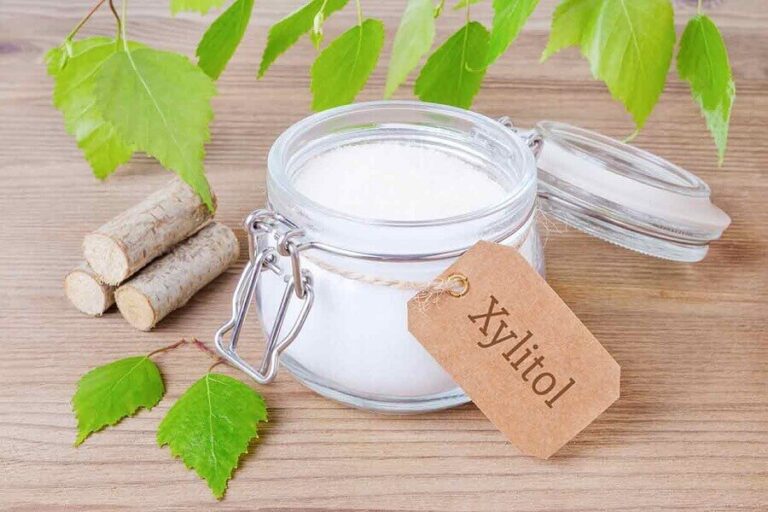You probably know turmeric as a spice. You may have also heard that it is used in Ayurvedic medicine, a holistic approach to health that originated in India more than 3,000 years ago.
Today, turmeric supplements are available for medicinal use. Science has confirmed several health benefits and properties of turmeric.
Knowing how much to drink and what it is for can confuse some people.
This article reviews the uses, benefits, and contraindications of turmeric and what is the recommended amount that you should take per day.
What is turmeric?
Turmeric (or turmeric in English) is a powder obtained from the Curcuma Longa plant, a plant in the same family as ginger. Traditionally, it is used for cooking in the Asian continent; it is the main ingredient in curry.
To make turmeric, the fresh rhizomes or boiled in water are dried, ground, and an intense yellow-orange powder is obtained. This is commonly used as a coloring and flavoring agent and for dyeing.
Turmeric powder has a warm, bitter black pepper flavor and an earthy mustard aroma. Turmeric benefits
Recent research has confirmed the health benefits of turmeric. Curcumin (the active ingredient in turmeric) has been shown to significantly reduce inflammation in the body and increase the level of endogenous antioxidants.
In addition, other studies claim that taking turmeric in capsules positively reduces pain in cases of osteochondrosis. (4)
As well as some studies affirm that curcumin can have positive effects in lowering cholesterol. (5)
The benefits of turmeric are directly related to the curcumin dosage. Studies suggest that when turmeric is used in seasoning (or curry powder), the level of absorption and bioavailability of curcumin is too low.
If you decide to take turmeric to improve health, it is recommended to use more than 1 gram of powder and freshly ground. If you find the taste too invasive, you can take curcumin capsules.
The benefits of turmeric are:
- Neutralizes free radicals
- Reduces inflammation
- It helps heal wounds and improves skin condition
- Reduces pain in cases of osteochondrosis.
- Normalizes insulin levels in the blood
- Increase good cholesterol
- May combat symptoms of mild depression
- May inhibit the development of Alzheimer’s disease
Contraindications and side effects
Turmeric is considered a safe space for health for most people. However, in rare cases, gastritis symptoms and other digestive problems such as stomach bleeding have been reported when consuming large amounts of this condiment³.
Also, taking turmeric in amounts greater than 8 grams can have androgenic effects. In other words, an excess of this seasoning can cause a drop in testosterone. Among other things, curcumin can negatively affect iron absorption and is not recommended in cases of anemia.
The contraindications of turmeric are :
- People with gallstones
- Chronic cardiovascular diseases
- People with irritable bowel or digestive disorders
- Pregnant and lactating women
- Anemia or lack of iron
Is turmeric good for weight loss?
Turmeric cannot be considered a fat burner, thermogenic, or weight loss supplement. Research has not found a direct relationship between body weight and seasoning. Excessive use of turmeric does not translate into better weight loss results.
Also, since turmeric is often combined with rice and other foods with a high glycemic index, it can cause the opposite effect. Remember that losing weight requires a negative calorie balance. Eating large portions of rice and hoping for weight loss from adding turmeric to meals is pointless.
How to take turmeric in capsules?
Before buying curcumin in capsules, please read the information on its composition carefully. The best combination is turmeric with piperine (black pepper extract) or soy lecithin. With meals, curcumin capsules should be taken 2-3 times a day.
In addition, it is known that absorption is significantly increased when taking turmeric in capsules combined with essential oils. To get the benefits of turmeric, this is a much more effective strategy than adding it as a seasoning².
Recommended daily dose:
- 500 mg of curcumin and 30 mg of piperine – 3 times a day
- 500 mg of curcumin with essential oils – 2 times a day
- 200-500 mg curcumin with soy lecithin – 2 times a day
Turmeric, according to Ayurveda.
In Ayurveda, the traditional medicine of India, turmeric is considered a natural antibiotic and a powder capable of strengthening the immune system.
Thanks to its bactericidal and antimicrobial properties, Adding it to meals reduces the risk of poisoning; useful in countries with hot and humid climates like India. For this reason, in this culture, curry is often used for seasoning.
Also, according to Ayurveda, turmeric is considered one of the main spices that improve digestion and stimulates the circulatory and nervous systems.
Turmeric has a sattvic nature, helping to balance the effects of unfavorable foods and foods that contribute to the buildup of the body’s mucosa (4). The benefits of turmeric, according to Ayurveda, are similar to ashwagandha powder.
Recipes with turmeric – turmeric
Turmeric is used to flavor all kinds of curry-like sauces. The taste of this seasoning goes well with that of pepper, cardamom, coriander, cloves, fennel, etc. As a condiment, it has a sui generis flavor and gives dishes a powerful yellow color and a pleasant aroma.
In Indian cuisine, this seasoning is often combined with ghee butter, giving dishes a pleasant caramel flavor. A classic recipe combines turmeric with chicken, ghee, and vegetables and goes well with cereals and pseudocereals such as buckwheat, quinoa, and potatoes.
ABSTRACT
Turmeric is a typical condiment of Indian cuisine and is the main ingredient in curry.
Current research has confirmed at least two health benefits of turmeric. It is a powerful antioxidant and reduces inflammation and pain in cases of osteoarthritis.
Curcumin, the active ingredient in turmeric, is responsible for its benefits. This can be purchased in capsule supplement form.
It is recommended to take fresh turmeric powder together with meals. This is a way to increase absorption and enhance its effects and benefits.







